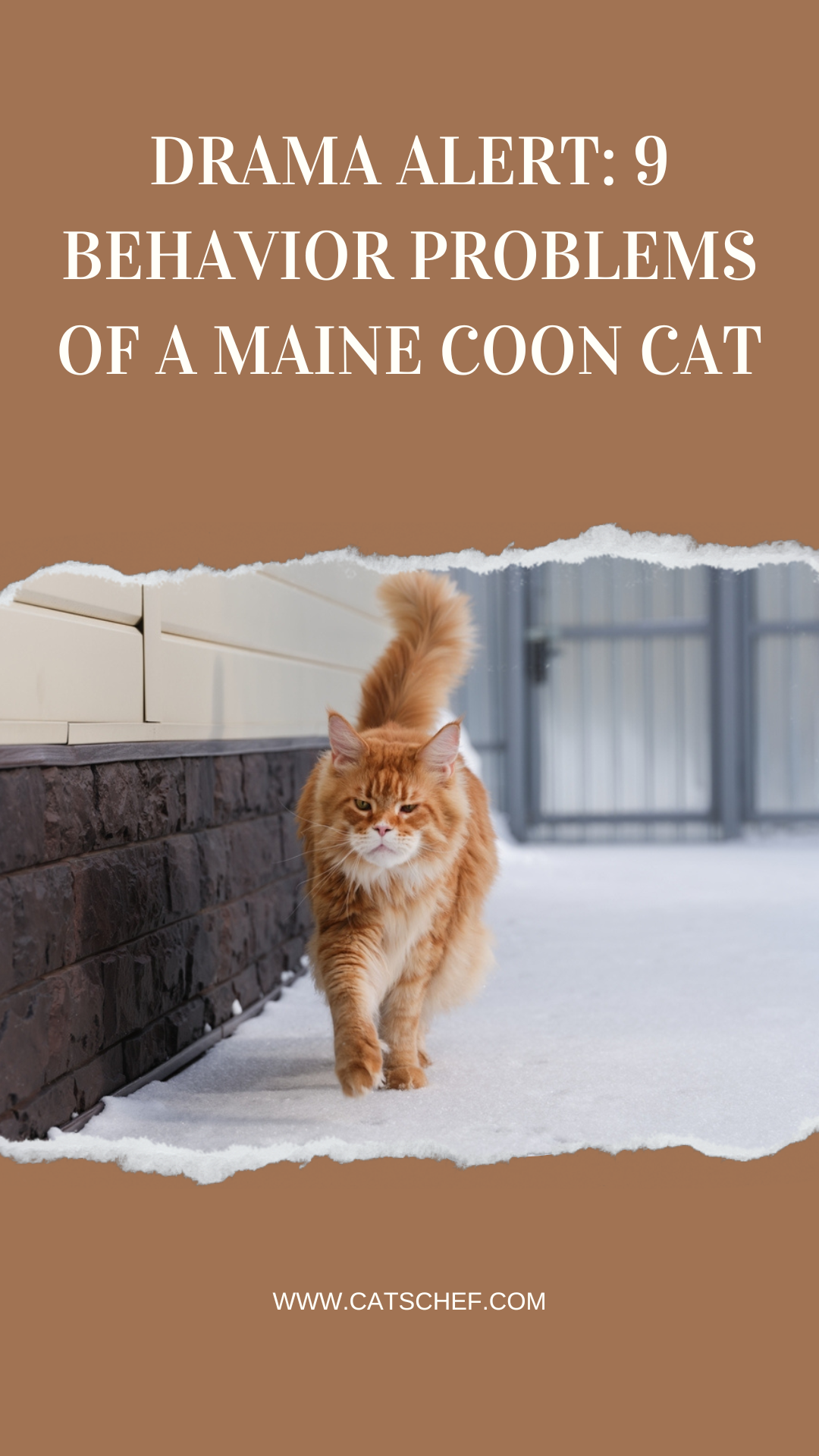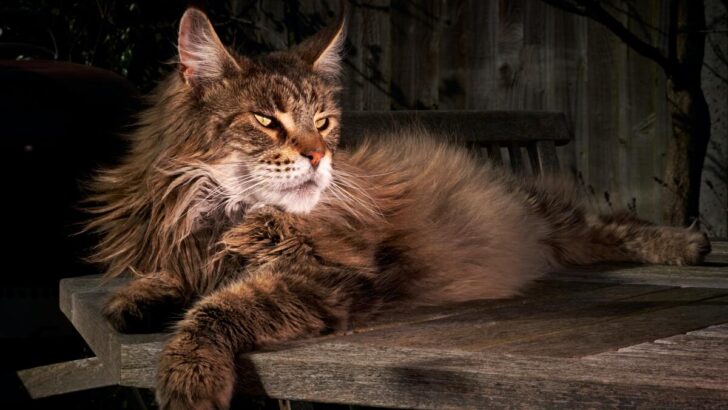Maine Coon cats are adorable, appreciative, and affectionate – for the most part. On one hand, they’re one of the most popular breeds out there because they’re sweet and even-tempered.
On the other, they’re known to develop behavior problems when they’re bored, neglected, or undervalued, or even because you refused to feed them for the fifth time that day. Coons can be dramatic, and here are some of the problems you might want to catch on time.
What are the biggest behavior problems of a Maine Coon cat you should be aware of?
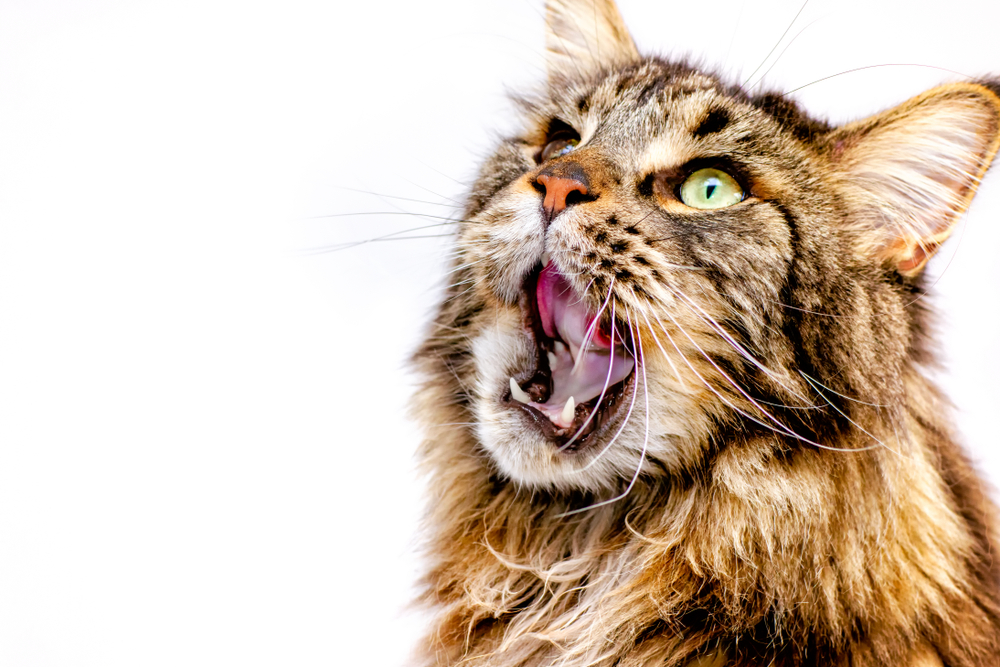
1. Maine Coons are incredibly expressive and vocal when trying to get your attention
When you’re working on your computer, watching your favorite TV show, or reading a book, and your Coon gets annoyed with you for not giving her enough attention, get ready for a concert.
Coons are prone to producing a myriad of sounds when trying to get your attention, from meowing and growling to trilling and chirruping. Contrary to popular belief, you have to do whatever she wants to make her stop.
2. You might catch your Maine Coon scratching the furniture when she’s bored
We’re aware that sounds bad, but (there’s always a but when it comes to Maine Coons) Coons are incredibly intelligent. They’re great at following commands and figuring out what makes you happy and sad.
But when they’re bored, they’re less likely to care about what you want because they’re annoyed with you. Because of that, they’re inclined to scratch your furniture to get back at you. Who thought Coons were that vindictive!?
Be intentional with the way you spend your time with her and your furniture should be safe, though.
3. She might start keeping away from the litterbox when bored or neglected
Starting to see a pattern here, right? Maine Coons are friendly, easy-going, and sociable, which means they’re the happiest when they’re surrounded by other Coons, cats, and humans.
When they’re left alone, though, they’re prone to getting annoyed, acting up, and causing trouble. When your Coon starts getting bored because you’re not paying enough attention to her, she might decide to do her business outside the litterbox just to make a point.
But when she does, make sure to address the underlying issue because she’ll keep on doing that for as long as she’s unhappy.
4. Maine Coons are prone to separation anxiety
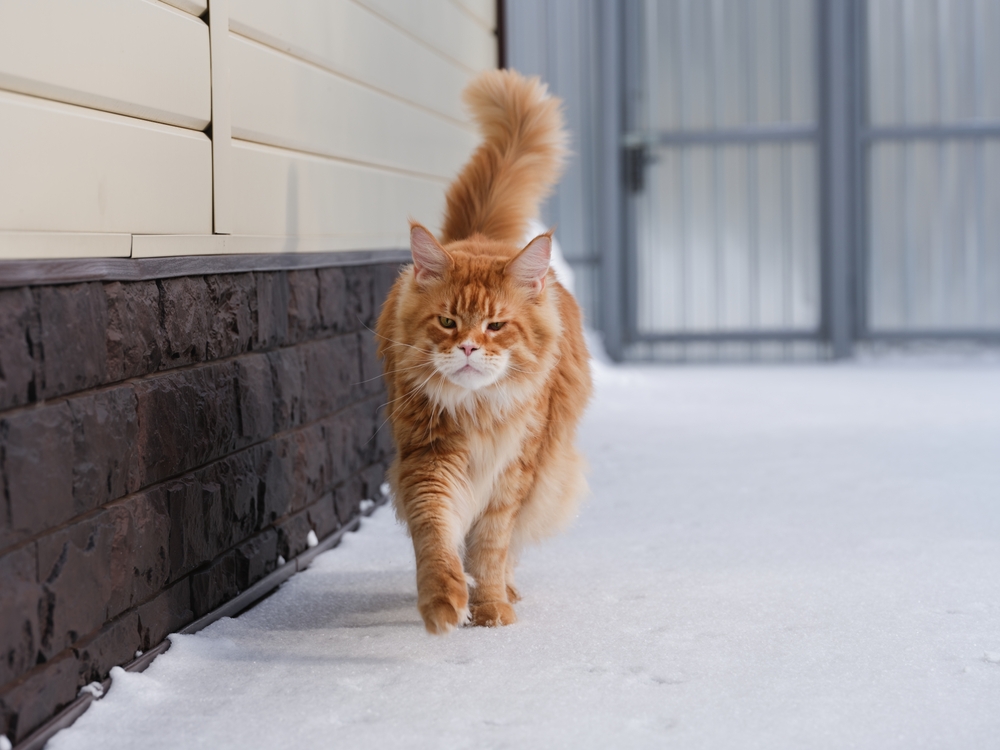
That’s right, your Maine Coon might get stressed out every time you leave her alone to go to the bathroom, prepare dinner without her hopping on the kitchen counter, or attend a Zoom meeting.
Not to mention the misery she might endure when you leave her alone for hours and hours while you’re at work.
Now, you can remedy that problem by getting her a friend. Maine Coons prefer hanging out with other Coons, but you can pretty much opt for anything when they’re a kitten. Coons are sociable regardless of who they need to socialize with.
5. Your Maine Coon may become possessive and territorial around other Coons
That doesn’t make sense, right?
That’s true, but Maine Coons are a little more complex than you might think. That’s why we urge you to get your Coon a friend when she’s a kitten rather than when she grows older. Coons tend to be possessive of humans and act up when they’re triggered or threatened by another animal.
Maine Coons aren’t aggressive, but they’re likely to attack anyone who tries to steal their spotlight, mark their territory, or entertain their human. Contrary to what you might have read online, Coons aren’t always all “rainbows and butterflies.”
6. She might become hyperactive at night
Maine Coons are known to sleep throughout the day and get hyperactive at night. Most people don’t mind that because there are ways to change that behavior – playing with them before bedtime to ensure they’re exhausted by the time you go to sleep, or keeping them physically active during the day.
Moreover, they prefer spending time with you when you’re awake rather than entertaining themselves while you’re asleep. If you notice your Coon staying awake late each night, though, you might want to consult with an animal behaviorist.
7. She might get aggressive while playing with other Coons
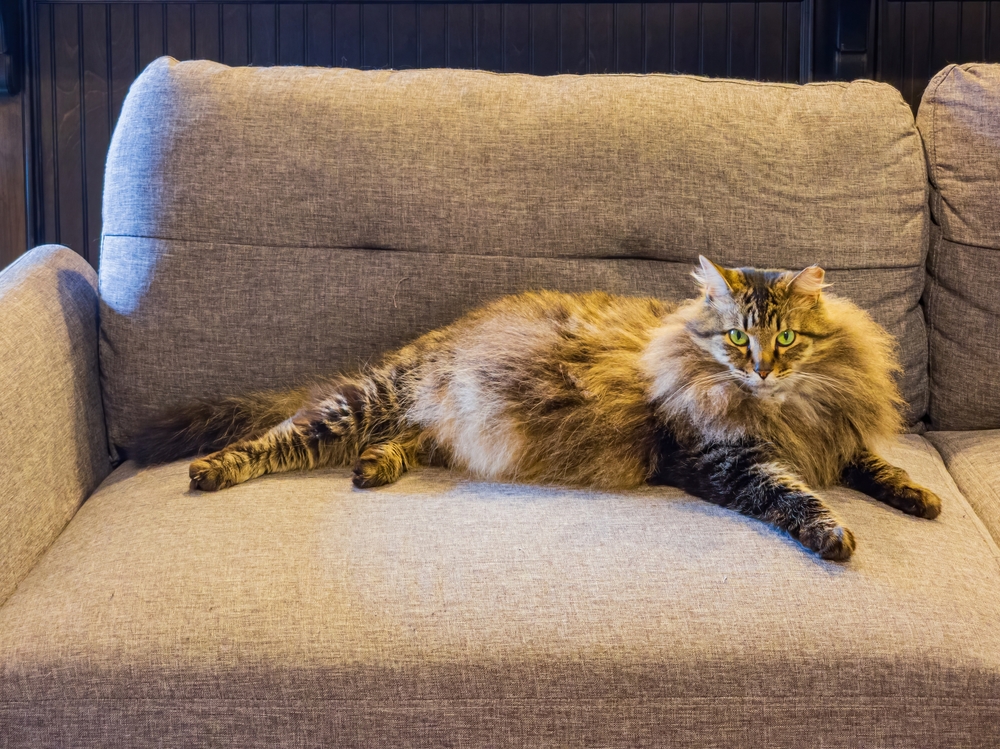
Play aggression seems to be the most common form of aggression Maine Coon express. Part of the reason that happens might be that your Maine Coon wasn’t trained correctly or wasn’t socialized as a kitten.
Coons are great with other cats when they’re familiar with the concept of playing with them, going outside with them, and meeting cats they’ve never played with before.
But when they’re doing that for the first time as a fully grown fluffer, they’re known to become stressed out and overwhelmed, which can cause aggressive outbursts.
8. Maine Coons aren’t an aggressive breed but can become aggressive when bored
We promise that Maine Coons aren’t aggressive, even though we seem to toy with the term “aggression” quite a few times throughout the article.
But that’s the thing, though – Maine Coons become aggressive when they’re bullied by other cats, neglected, or bored. They aren’t the most energetic, animated animals, but that doesn’t mean that they’re okay with only napping on the couch, rolling on the floor, and waiting for you to come home.
9. Your Maine Coon may at times overeat and overgroom
Maine Coon cats are super sensitive and attached to humans, and they can get stressed out when they’re abandoned (a.k.a. when you go to work).
Overeating and overgrooming are two of the most common ways Coons battle stress. On top of that, they are known to do these things when experiencing health problems, too. Overeating and overgrooming can cause an array of other conditions and diseases, which means you need to react ASAP.
Contact your vet the moment that you notice any of the symptoms. Coons make purrfect pets, but that doesn’t mean that they’re devoid of attitude and behavior problems.
